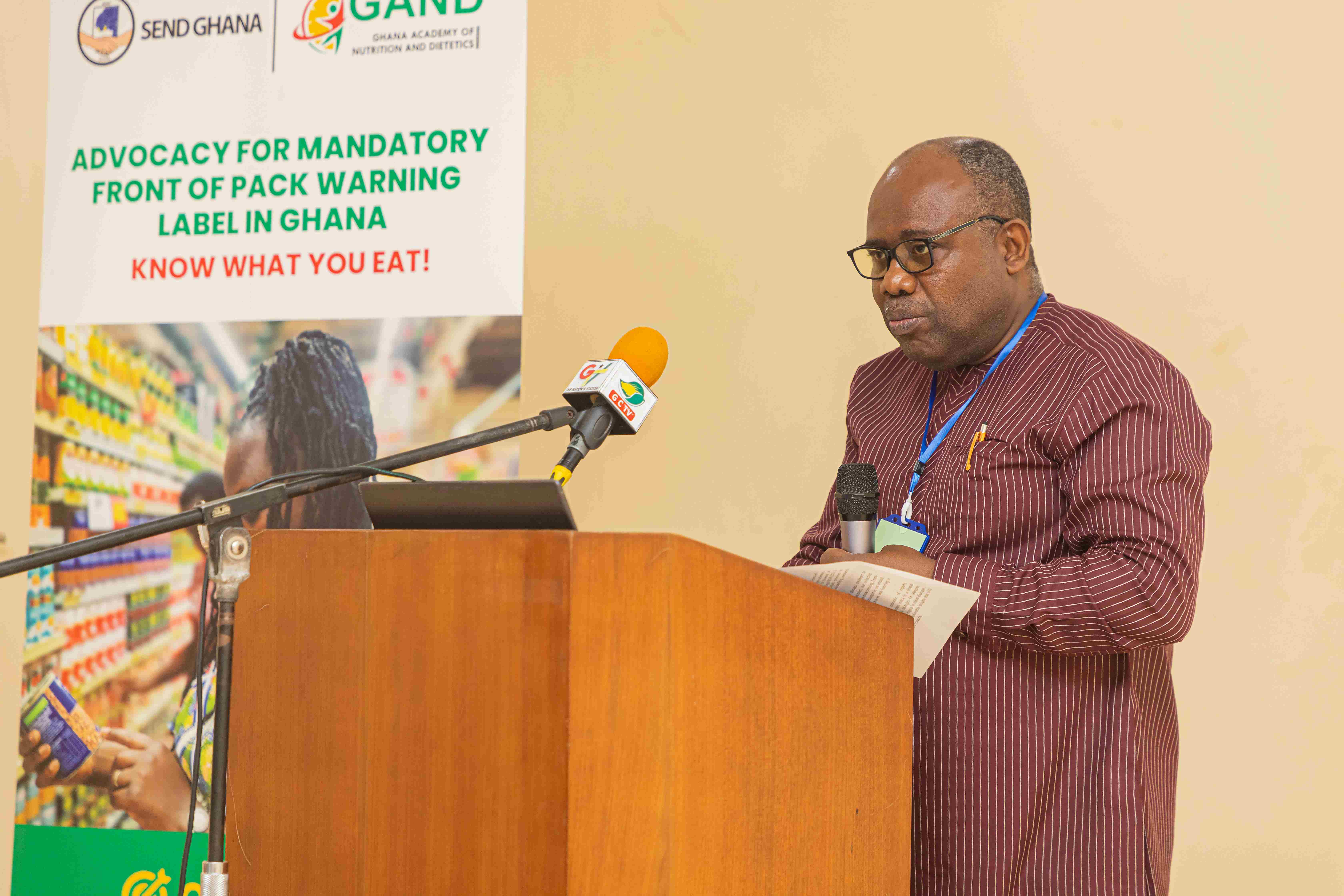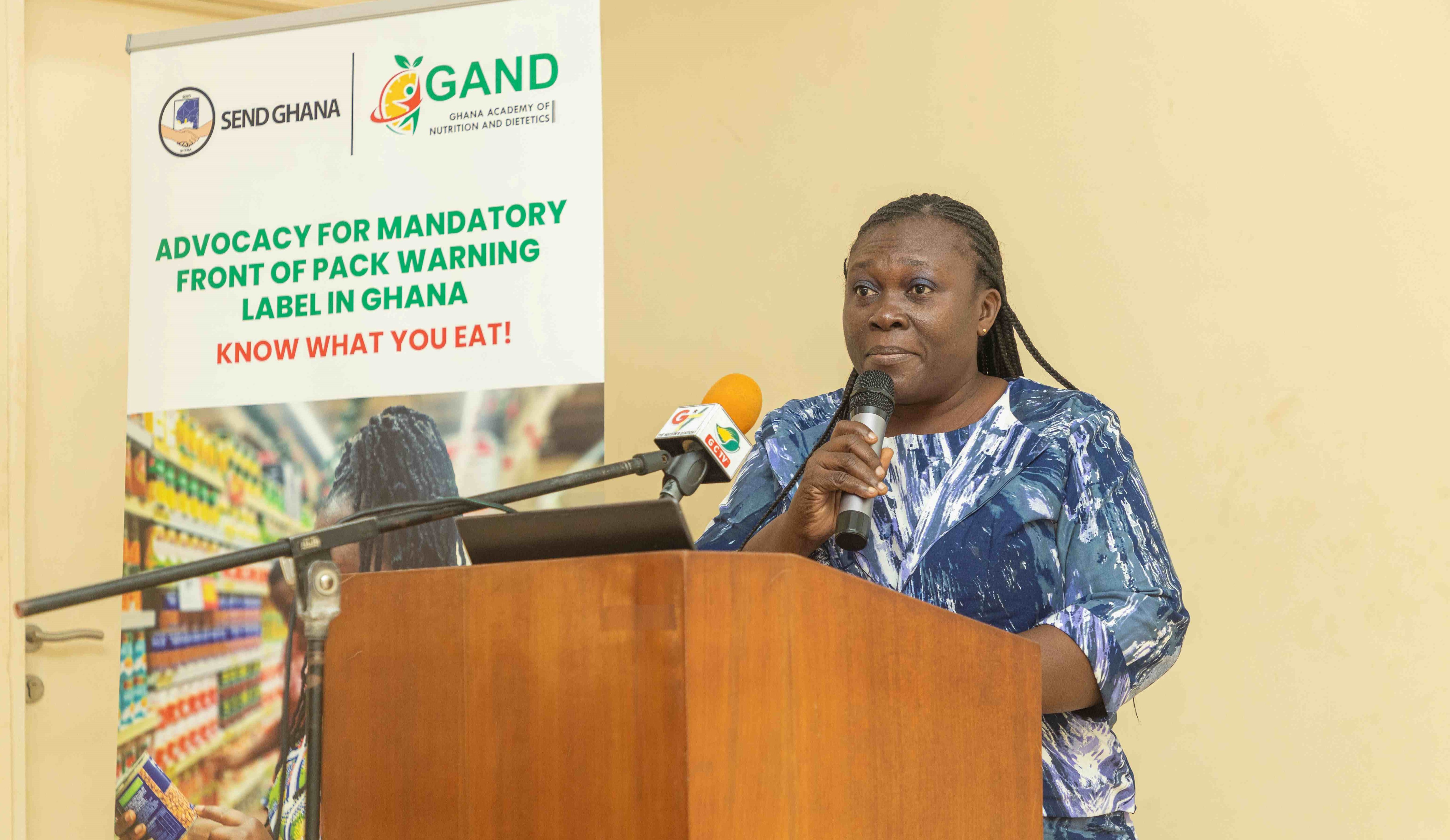KNUST Partners with SEND-GHANA and GAND to Advocate for Front-of-Package Warning Labelling Policies
The Kwame Nkrumah University of Science and Technology (KNUST) has collaborated with the Social Enterprise Development Foundation (SEND-GHANA) and the Ghana Academy of Nutrition and Dietetics (GAND) to promote the adoption of Front-of-Package Warning Labelling (FOPWL) policies in Ghana.
To raise awareness about the significance of clear food labelling, a symposium was organized to educate consumers on making informed dietary choices and to encourage food manufacturers to reformulate their products to meet healthier standards.
Despite strong scientific backing for the effectiveness of FOPWL and Nutrition Profiling Models (NPM) in safeguarding public health, Ghana has yet to implement these crucial policies.
The symposium served as a platform for academia, researchers, and policymakers to engage in discussions regarding national nutrition standards, with the objective of shaping policies that enhance the overall health of Ghanaians.

Professor Leonard Amekudzi, Provost of the College of Science at KNUST, urged participants to be passionate about driving meaningful change. “Harness the power of collective knowledge and experience to co-create solutions that will promote a healthier, sustainable food system,” he stated.
Mr. Joseph Danquah, General Secretary of GAND, reaffirmed the organization's dedication to science-driven nutrition policies. “We aim to advocate for mandatory FOPWL regulations in Ghana, suitable for our market, and engage policymakers and industry leaders,” he stated. He further emphasized the importance of collaboration, adding, “This symposium is not just about dialogue; it’s about driving action that will impact lives forever.”
Mrs. Harriet Nuamah Agyemang, Country Director for SEND-GHANA, underscored the urgency of implementing FOPWL policies. “We need the FOPWL policy, and we don’t have that yet, so we are advocating for it as quickly as possible,” she stated.

She highlighted that having this policy in place would provide a framework for government interventions. She further explained, “The policy would enable the government to engage with industry players and importers effectively, particularly as Ghana relies heavily on food imports.”
Mrs. Agyemang also drew attention to the importance of setting national standards, stating, “Just as when we export raw materials to international markets and are required to meet certain standards, we should also set standards for the products coming into the country. This must be a priority because, ultimately, it’s our health at stake. As the Ministry has stated, the health of the people is the wealth of the country.”
She also pointed out the economic impact of neglecting proper food labelling. “If the government needs to allocate more funds to healthcare, then they would have to find a way to collect more revenue from the people of Ghana. It becomes cyclical. It is important we add the warning labelling so that even the illiterate and semi-literate can quickly understand,” she explained.
Professor Reginald Adjetey Annan of the Department of Biochemistry and Biotechnology at KNUST addressed the issue of an obesogenic environment in Ghana. “The Ghanaian environment is obesogenic, and such an environment encourages unhealthy food consumption, promoting poor health,” he explained. “FOPWL will provide an opportunity to improve the food environment, making it much healthier, and will improve food behaviour and choices,” he stated.
The symposium marked a significant step toward advancing nutrition policies in Ghana, bringing together key stakeholders committed to ensuring a healthier future for the nation.